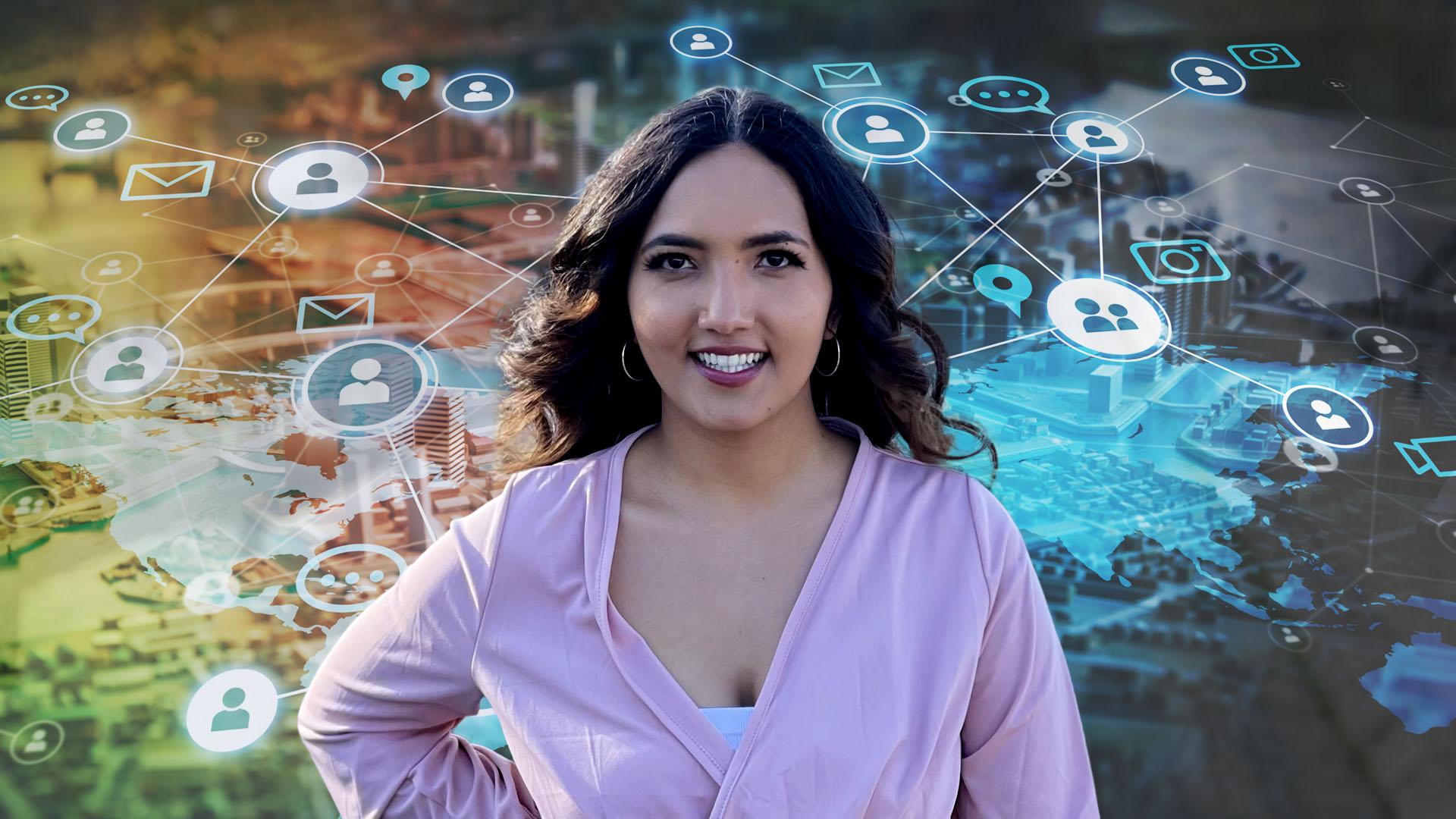Like a lot of students, Sadiah Rahmani didn't have a clear picture of her career path when she graduated from high school. She began a fitness and health program at another college, but during a break from her studies, her passions came into focus.
She began to realize she'd always had an interest in social work. She applied for both the Social Service Worker and Community Justice Services (CJS) diploma programs at Humber, and ultimately decided to enrol in the CJS program because it blended social services and justice. It's not hard to understand why.
Immigrating to Canada from Afghanistan, Rahmani saw the challenges immigrant families face. Her dad had been a doctor and her mom had a pharmacist degree, but they ended up working in a factory in Canada. “It was something that was difficult for me to accept, and I felt it was so unfair,” she says, adding that she had the responsibility of helping her parents navigate the system due to language barriers. “There was also my own experience as an immigrant youth, trying to fit into Canadian society and finding my place.” She credits her passion for working with youth and social justice issues as being connected to her personal journey as an immigrant.
As part of the CJS program, Rahmani experienced her first social service work experience as a placement student with The Gatehouse, an organization that provides support, community and resources for people impacted by childhood sexual abuse. “My first placement was a reality check for me,” she recalls. “I was interacting with clients, working in such a sensitive environment with people dealing with trauma. I learned about confidentiality and how to support people.”
After completing her two-year diploma, Rahmani jumped at the opportunity to earn a degree by way of Humber’s transfer pathway that allows CJS students to ladder into the Bachelor of Social Science - Criminal Justice program. While Rahmani imagined herself in another client-facing role, she had a difficult time securing a placement amidst the pandemic. She landed a remote research internship at VOICES Global Collective, an organization that’s dedicated to facilitating personal and social change for young people who deal with challenges related to marginalization.
“I’m empathetic toward other people, so when I think about my own experiences, I think about what other children are going through — those who are less fortunate than me.”
Along with other VOICES interns, Rahmani was tasked with research for an app that is being developed to help people connect with organizations that provide a wide range of social services — from mental health and addiction support and resources to immigration services and more. Rahmani also created a survey to send out to organizations to help assess which services should be featured in the app. “The survey was designed to see how inclusive they are of diverse populations, whether they have formal training, and how much funding they get,” she explains.
Initially, Rahmani wasn’t sure what to expect from this experience. Soon, she realized she was gaining important skills and making an impact. “I wasn’t looking forward to a remote placement, but it turned out to be great because I’m now so much more confident doing online meetings and talking to people,” she says. “The internship at VOICES was different from my previous placement, but the work we did was meaningful, and at the end of the day, the app will help a large population.”
In addition to the app research, Rahmani also worked on developing video content on various social justice and legal issues. “As a placement student, I started developing and researching podcasts and hosting weekly Instagram Live sessions. I learned so much, and now I can say that I’m actually comfortable on camera.” The experience was rounded out with participating in weekly workshops on topics such as grant writing and online meeting etiquette and engagement, as well as weekly calls with a partner organization in Ghana, Africa.
Rahmani’s credits her supervisor Ahmeda Mansaray-Richardson with giving her the opportunity to learn and grow. “She’s been such a great mentor to me, and I’ve learned so much from her. She gave me the opportunity to step up my game and step outside of my comfort zone.”
Since her internship ended in the summer of 2021, Rahmani has been working part-time at VOICES as a research fellow. She supports the current group of interns, continues to be involved in the Instagram Live sessions and is working on her own research related to employment and education barriers for first- and second-generation immigrant youth. “Within Toronto, over half the population is foreign-born,” she says. “I’m going to focus on any policies that might make it difficult for them to find a job or that might prevent them from progressing in education. I know some people who come from overseas can’t transfer their credits, for example, so I’m going to be looking at that.”
